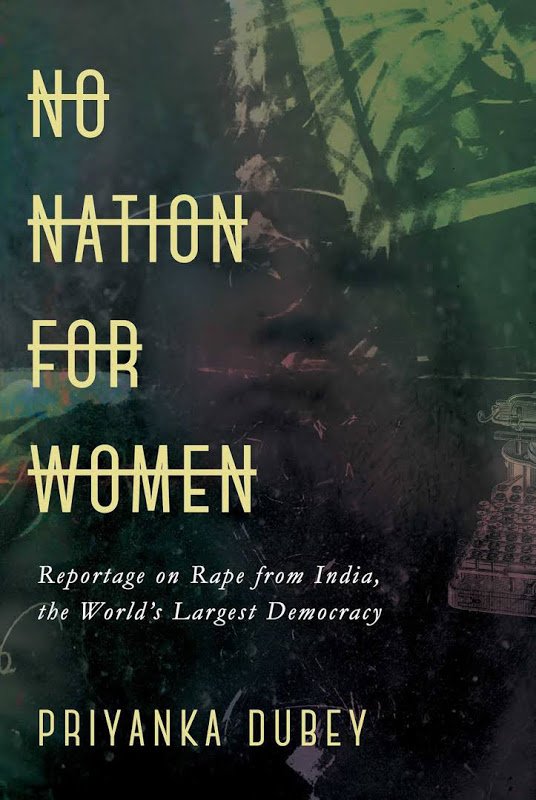
Priyanka Dubey, a journalist with BBC, has come out with her first book that documents rape cases across India. It took her six years to report on these cases. She talks about the toll reporting on crimes can take on a journalist, why she’s was drawn to stories on gender justice, interviewing victims and survivors, and why the media needs to be more sensitive.
As a journalist, what impact does daily reporting on such crimes have on your day-to-day life? How does it affect you?
Earlier, I was not so vocal about it. But now, I don’t shy in admitting that it has had an immense effect on my life and on my personal relationships. People who know me say that I have an immense pent up emotional baggage inside me. I used to maintain my sanity by finding my own healing zones, but still it alters you. I am totally changed as a person. It makes you dark and lonely in a weird way. It is emotionally disturbing. It is like you are hanging on the edge of losing your sanity.
Can you explain what sort of a place is Bundelkhand, on which there is a chapter in your book? How did they view you as a reporter there?
Bundelkhand feels like time has stopped there and that people are living in some different era. Their thought process is completely different. People were hostile and I had to be calculative about my timings and had to leave the car outside the village. I got to know how deep-seated and how normalised patriarchy is. The fact that a 15-year-old girl is aspiring to go to school and her parents allowing it, is seen as a luxury.
Did the crimes there have a connection to caste?
In most of the cases, I saw that they were from the lower caste of poor caste and had no access to education.
How do you see the reaction of male members when you interview such victims?
It is fractured. I cannot generalise. In one story, the father used to say that ‘mera mu kaala hogaya’ and he died 10 days of heart attack after her juvenile daughter got raped. Throughout those 10 days he used to keep repeating that statement. He had also stopped eating. But in one case, where the father was extremely supportive and wanted to fight for her daughter. There is also an example where the father stopped talking to her daughter. She was confined in a separate structure. He felt ashamed of the unwanted media attention. I feel displaced when I come back to Delhi from such places.
What is the situation with respect to the media handling of such cases when there is too much attention for the family to handle? How does the family deal with it? Did you ever feel unwanted?
I have done follow-ups in cases when there was a lot of media attention and also when there were not many people from the media. Definitely, when there are many people, the family does feel uncomfortable. I had reported extensively on the Asaram case and when I was reporting on that case, I remember going to the house of the victim’s father. A Hindi TV channel’s reporter almost thrusted the mic in the mouth of the father who felt clueless. His hands were folded and he had tears in his eyes. When the reporter came out, he said, “Mera toh kaam hogaya (My work is done).” I feel really angry when reporters deal with it in such an insensitive way when the family is in a state of shock and trauma. In one case where a female constable was raped in Jharkhand, she was not ready to talk to anyone. But when I approached her with empathy and asked her, she agreed to it.
As someone who has reported on this for six years, what do you see as the key problems in India when it comes to rape? Also, what are the possible ways to fix it? Why is it so tough for victims to get justice?
Initially, I felt that I could make sense of all this. But now these days when you hear cases where 2-3-year olds are being raped, it is so outrageous. I do not see any reason behind this behaviour. Patriarchy and conditioning are so deep seated that they do not think before committing this crime. People do not even realise that they are so conditioned to this patriarchy. They somehow feel that they will get away with it. The conviction rate is so low. Many men feel ‘isko toh iski aukaat dikhaani hai’. So, it is the mindset that we need to change, the feudalistic attitude. Death penalty is not a solution in anyway.
Do you feel that being too sympathetic towards the victim hinders your reporting or do you see it as a strength?
I think my training as a reporter was very solid. The story has to be balanced, so that never comes in the way. I feel that women should be encouraged to report on women. Rape is the only crime in India where the victim is blamed.
www.newslaundry.com
Five quiet corners across Delhi-NCR where February evenings slow the city down, letting breeze, fading…
A solo exhibition by Anjali Mittal exploring emotion, memory and intuition through layered blue-hued paintings
The incident occurred on Saturday near Bakhtawarpur. A senior police officer said a team rushed…
V K Saxena approves 20 per cent reservation, age relaxation, and test exemption for ex-Agniveers…
The fair at Gandhi Darshan brings together emerging and senior artists, showcasing over 200 artworks…
State Names Authority approves renaming of two metro stations and modifies seven others, aligning station…